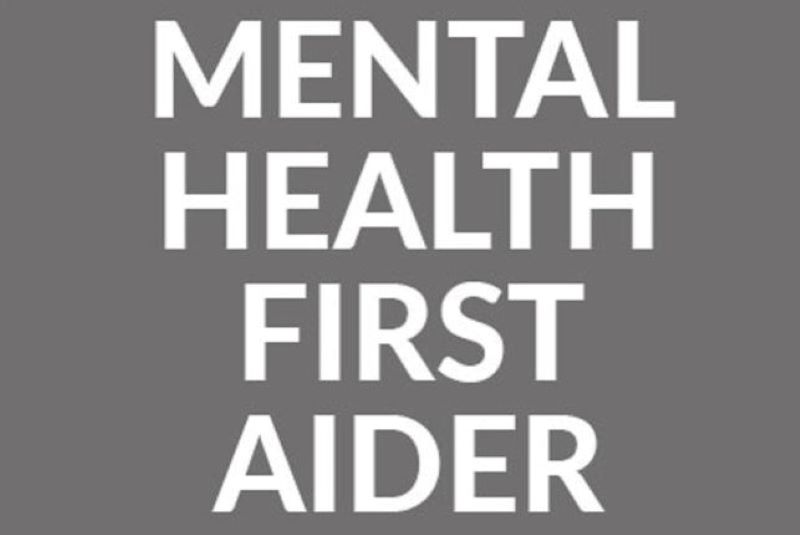
Five benefits of mental health first aid training
Leading rescue organisations have long since developed teams dedicated to psychological support and mental health
This has come about as an acknowledgement of the importance of this aspect, which also often affects the effectiveness of the rescue of the patient’s body.
And it plays, international news stories tell us, a crucial role in the management of maxi emergencies, whether health, food or humanitarian.
But the development of specific areas of rescue does not imply that every citizen cannot equip himself with first aid tools in the psychological field.
The importance of addressing mental problems through mental health first aid training
For more than 20 years, evidence-based training courses have provided people with the practical skills, knowledge and confidence to help those with a mental health problem.
No substitution for professionals (psychologists and psychiatrists), but… would you know how to detect the first symptoms of a depressive state? Would you know how to intervene on a suicidal intention before it detonates?
Mental health first aid: what is Mental Health First Aid?
Mental Health First Aid (MHFA) is an evidence-based training course designed to provide individuals with the skills and knowledge necessary to identify, understand and respond to signs of mental illness.
In this way, anyone, including non-medical staff, will be able to offer immediate and practical support to reduce the factors that contribute to poor mental health.
It may be easy to recover from a physical injury with medical first aid, but recovering from trauma and unfortunate events (e.g. a disaster) is not easy.
These events can have a strong impact on the brain, which can continue to affect the person’s life if left untreated.
The mental health first aid course helps to understand the effect of stress, loss, trauma and bereavement on the mind
It is important to understand these effects in order to help oneself and others deal with life’s challenges.
This can be done by building resilience through learning different coping strategies.
MHFA training is delivered by a highly qualified and experienced instructor in the field.
The instructor or RTO will provide specialised training to facilitate the course with high efficiency so that students understand how to improve their mental and emotional well-being.
The main objective of this course is to teach self-care strategies and how to care for others who may suffer from mental disorders.
5 benefits of learning MHFA: why take a mental health first aid course?
Here are some of the benefits of learning Mental Health First Aid.
Developing a sense of safety
The components of MHFA training teach how to make yourself and others feel safe with all the uncertainties and unwanted emotions we are experiencing.
By creating a sense of safety, we communicate directly with our brain’s fight-or-flight system.
One way to do this is to stay away from situations that can trigger stress, anxiety or any other negative response from our system.
Identifying early warning signs
Being able to recognise the early warning signs of mental disorders can significantly help change the outcome of a situation.
Reducing stigma
Although there has been a significant improvement in the discussion of mental health in recent years, there is still an underlying stigma attached to this topic.
Having open conversations with other people who have a positive view of mental health will help the way mental health is perceived.
Establishing a connection
Knowledge of the MHFA helps you connect with people and show that you are a social support they can rely on.
You can do this by listening in a non-judgmental way and encouraging people to tell you their opinion and feelings.
In this way you will develop a feeling of acceptance and a lifesaving partnership.
Saving lives
The last thing we want is for our loved ones to feel that their only option is to hurt themselves.
Knowing the MHFA allows you to spot the warning signs of suicide, which can eventually save lives.
By enrolling in a Mental Health First Aid course, you ultimately gain the skills and knowledge needed to help those who are developing or experiencing a mental illness.
You receive training in how to assess risk or harm, how to listen and initiate a supportive conversation, and when to seek professional help.
Above all, you learn how to take care of your own mental health and well-being in order to be able to help others.
Read Also:
Emergency Live Even More…Live: Download The New Free App Of Your Newspaper For IOS And Android
Defusing Among First Responders: How To Manage The Sense Of Guilt?
Temporal And Spatial Disorientation: What It Means And What Pathologies It Is Associated With
The Panic Attack And Its Characteristics
Pathological Anxiety And Panic Attacks: A Common Disorder
Panic Attack Patient: How To Manage Panic Attacks?
Panic Attack: What It Is And What The Symptoms Are
Rescuing A Patient With Mental Health Problems: The ALGEE Protocol
Why Become A Mental Health First Aider: Discover This Figure From The Anglo-Saxon World
Anxiety: A Feeling Of Nervousness, Worry Or Restlessness
Firefighters / Pyromania And Obsession With Fire: Profile And Diagnosis Of Those With This Disorder
Intermittent Explosive Disorder (IED): What It Is And How To Treat It
Management Of Mental Disorders In Italy: What Are ASOs And TSOs, And How Do Responders Act?
ALGEE: Discovering Mental Health First Aid Together
Rescuing A Patient With Mental Health Problems: The ALGEE Protocol
Basic Psychological Support (BPS) In Panic Attacks And Acute Anxiety
The Severity Of Depressive Symptoms Over Time May Help Predict Stroke Risk
Anxiety, When Does A Normal Reaction To Stress Become Pathological?
Generalised Anxiety Disorder: Symptoms, Diagnosis And Treatment


